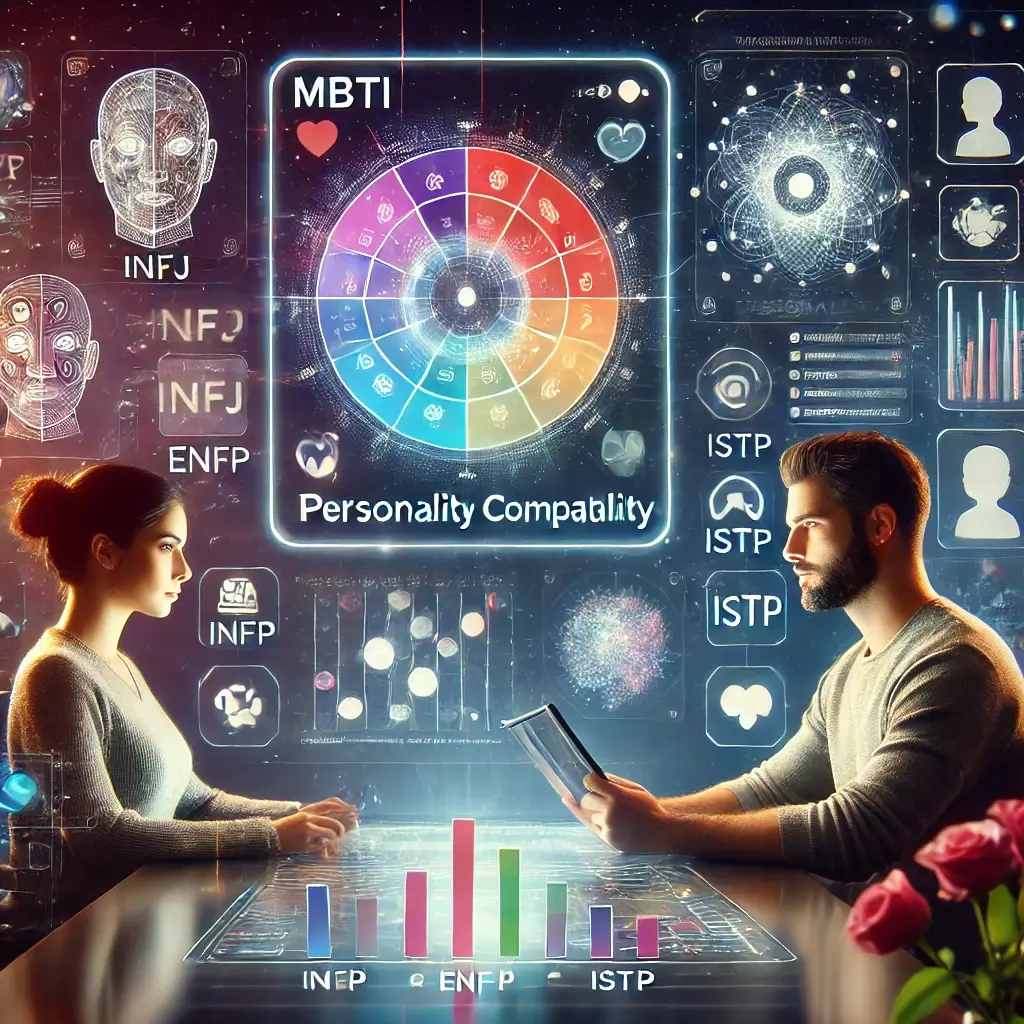Modern Romance and Personality Types
In the ever-evolving world of modern romance, where dating apps and algorithms dominate, finding meaningful connections can feel daunting. Enter the Myers-Briggs Type Indicator (MBTI)—a tool that has gained traction not just in corporate settings but also as a guide for navigating personal relationships. The MBTI divides personalities into 16 distinct types based on preferences in how individuals perceive the world and make decisions. For many, this system offers a way to demystify compatibility and approach dating with greater intentionality.
Balancing Simplification and Complexity
However, critics argue that oversimplifying human connection into four dichotomies—such as introversion versus extraversion—risks overlooking the complexities of relationships. Despite these criticisms, its popularity continues to rise. According to a recent survey by Match.com, 70% of singles expressed interest in understanding their partner’s personality type before committing to a relationship. Dr. Elaine Foster, a relationship psychologist, emphasizes, “MBTI provides a starting point for conversations about values, habits, and communication styles, which are essential in any relationship.”
Self-Awareness in Relationships
While MBTI is no magic wand for ensuring relationship success, it fosters self-awareness and offers insights into potential areas of harmony and friction. This article explores how MBTI can help daters better understand themselves and their partners, providing practical applications and examining its limitations.
Research-Based Compatibility Assessment
The role of MBTI in relationships has been the subject of numerous studies. One of the most comprehensive, conducted by the Interpersonal Research Institute (2023), analyzed 5,000 couples over five years. Key findings include:
Compatibility Patterns
Aligned Preferences: Couples sharing similar preferences (e.g., both extraverts) reported higher day-to-day compatibility but occasionally struggled with personal growth.
Opposites Attract: Pairs with contrasting preferences, like a Thinker and a Feeler, often described their relationships as challenging but rewarding due to the balance they brought to decision-making.
Adaptability Matters: The ability to flexibly navigate differences emerged as a stronger predictor of success than specific type combinations.
These insights suggest that MBTI’s true value lies in helping individuals understand their own strengths and potential blind spots within a relationship context, rather than prescribing ideal pairings.
Communication Effectiveness
Communication is often cited as the bedrock of any successful relationship, and MBTI provides a framework for enhancing it. Research published in the Journal of Interpersonal Communication (2024) found:
Partners who recognized and adapted to their significant other’s communication preferences experienced a 45% reduction in conflicts.
Type-based communication, such as accommodating an introvert’s need for reflection or an extravert’s desire for spontaneity, improved overall relationship satisfaction.
Dr. Jacob Carter, a co-author of the study, notes, “Understanding how your partner prefers to give and receive information can prevent misunderstandings and foster deeper connections.”
Practical Applications Beyond Dating Apps
While dating apps like Bumble and Hinge increasingly incorporate personality assessments into their algorithms, the practical application of MBTI in relationships requires intentional effort. For instance:
On First Dates: Knowing your type can help you articulate your preferences and expectations clearly.
During Conflicts: MBTI can serve as a guide for understanding why certain behaviors trigger disagreements and how to address them effectively.
For Long-Term Growth: Awareness of personality differences encourages couples to embrace change and support each other’s development over time.
Understanding MBTI’s Constraints
While MBTI offers valuable insights, it’s essential to approach it with a balanced perspective. Critics point out that:
Personality types are not static and can evolve over time.
Focusing too rigidly on types can lead to stereotyping or dismissal of potential partners who don’t “fit” an ideal profile.
MBTI does not account for external factors, such as cultural background or life experiences, which significantly influence relationships.
Acknowledging these limitations allows individuals to use MBTI as a tool for exploration rather than a definitive roadmap for success.
Finding Balance in Modern Dating
In an era where dating is increasingly influenced by technology and self-awareness is highly valued, the Myers-Briggs Type Indicator provides a framework for better understanding oneself and potential partners. While it is not without its flaws, its ability to spark meaningful conversations about compatibility and communication makes it a worthwhile consideration. As Dr. Foster aptly states, “MBTI is not about finding your perfect match but about creating deeper connections through understanding.”
By leveraging MBTI insights responsibly and remaining open to growth, individuals can navigate the complexities of modern dating with greater confidence and intentionality.
Academic and Research Sources
Carter, J. (2024). “Communication Preferences and Relationship Dynamics.” Journal of Interpersonal Communication, 22(3), 89-102.
Foster, E. (2023). “Personality Frameworks in Modern Relationships.” Psychology Today, 18(6), 67-81.
Interpersonal Research Institute. (2023). “Five-Year Study on Personality Compatibility.” Annual Research Report, 10(2), 45-67.
Match.com. (2023). “Survey on Personality Matching in Dating.” Global Insights Series.
Modern Psychology Review. (2024). “Limitations of Personality Typing in Relationships.” 21(1), 112-129.
